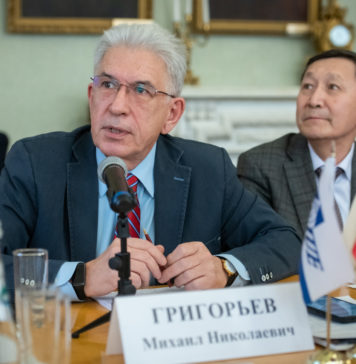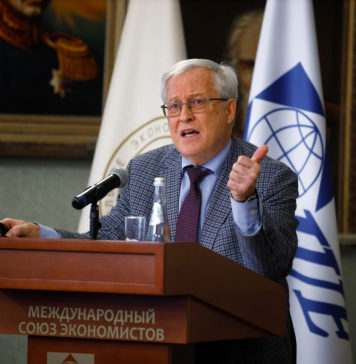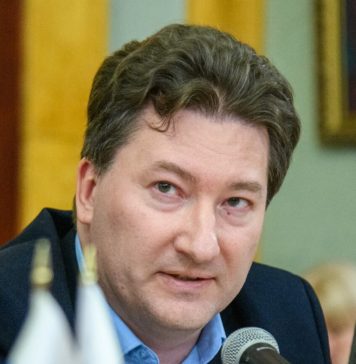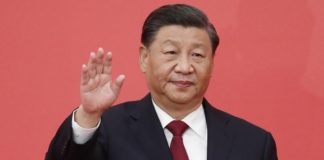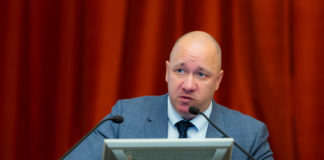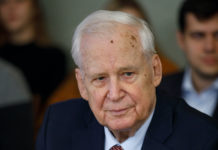The future of the economic nationalism.
David Lane
Fellow of the Academy of Social Sciences, Emeritus Reader in Sociology and an Emeritus Fellow of Emmanuel College
CHALLENGES OF THE GLOBALISATION
When I was thinking about what introductory remarks I could make to this topic, which is on Beyond Globalization, I looked in “The Communist Manifesto,” where Marx pointed out the following, “National differences are vanishing gradually from day to day owing to the development of the bourgeoisie, to freedom of commerce, to the world market, to uniformity in the mode of production and in the conditions of life corresponding thereto.” This makes Marx one of the first to note the rise of globalization and the resulting uniformity of capitalism. For Marx, the answer to the question beyond globalization was simple: the prospects for global capitalism mean socialism.
What do I understand by globalization? Globalization is the system of exchange involving simultaneous social interactions on a transcontinental basis. State boundaries are porous; technically, it is made possible through electronic and other modern forms of communication. It involves the interdependence of national economies and the integration of economic life. Globalization enables liberal market systems to be truly stateless. Globalization facilitates the transposition of classical economic liberalism to the current form of neoliberalism. Global neoliberalism involves a free movement of labor, capital, goods, and services between countries. It is the market which will determine the allocation, combination and output of goods and services. The global market is the form of economic coordination. The market will resolve incompatibilities between the demand and supply, the factors of production. It will ensure the effective use of resources channeling capital and labor into their most efficient uses.
It is to Donald Trump that I turn to illustrate the social and political deficiencies of globalization. As Trump put it, “In the United States, we have registered unemployment of 7.5mln people actively seeking work, so you can say that realistically involuntary unemployment is at least 12 mln people. And this leads to urban blight, rising interpersonal crime.” Again, Trump points out that “over 43 mln Americans regularly receive food vouchers under the supplemental nutritional assistance program. There is, therefore, considerable poverty for a significant part of the population.” Again, he points out that the trade deficit in 2016 was $645bn. The cumulative trade deficit of the United States since the year 2000 is $8.6 trillion. And the balance of payments deficit is $8.3 trillion.” Trump here describes richest countries in the world. Market mechanisms have not led to a desirable economic equilibrium. Rather, the functioning of the market has led to recurring economic instability and even in the rich states to persistent, traditional and institutional forms of poverty.
ALTERNATIVE OF THE POST-GLOBALIZATION
The system entails the weakening of states and their allocative role. The problem here is that the globalized market does not resolve these incompatibilities. Investment does not always promote social development, though might ensure profits. It does not ensure the optimum employment of labor. The competitive market leads to the rich becoming richer and the poor becoming poorer.
The present discussion revolves around what kind of post-globalization can rise out of contemporary neoliberal globalization. Some envisage changes coming from within globalization in terms of the changing occupational structure and the rise of what they call ‘a creative class’. A new form of production is envisaged which will move towards, if not achieve, what they call ‘the kingdom of freedom’. As my fellow professor from Saint Petersburg puts it, “The world of knowledge in material production is becoming increasingly more significant.” Knowledge intensive production is, and here I quote, “a radically new type of material production.” The problem is how will this change come about? How will it be achieved under the present conditions of globalized capitalism?
This conference is concerned with the Eurasian continent, and it will be interesting to see how the speakers in the first panel envisage overcoming the problems entailed by neoliberal globalization. The problem to be addressed is how a modern form of advanced technological development can be introduced in countries forming the Eurasian Union and political area.
he underlying assumption of neoliberalism is that the unrestricted movement of capital, labor, goods and services will be resolved on the basis of laws of comparative advantage. If countries produce what they can do best and then exchange with others, the optimum level of production will be achieved. But the laws of comparative advantage justify the existing division of labor rather than any natural division between different countries or different areas. So using comparative advantage will only strengthen the existing unequal distribution of resources. It will not lead to investment in training which would give rise to new forms of production in underdeveloped areas. The free mobility of labor will then lead to the greater impoverishment of those areas which lack investment and maintain an unskilled and uneducated workforce.
ADMINISTRATIVE COORDINATION
Outmigration, that is, in neoliberal terms, getting what you deserve from the world, is the neoliberal solution. This, however, has cumulative effects. It strengthens the strong economic areas and weakens the poor ones. What then is the alternative?
Today, anyone advocating economic nationalism is usually regarded as someone almost as evil as a child molester or at least as a Holocaust denier. However, there are many types of economic nationalism. There is not one economic policy like neoliberalism or economic socialism. Economic nationalism can be a shell for socialist planning, one-nation conservatism, a social democratic mixed economy or state- led corporatism. The Soviet Union, as well as the post-war British Labor government operated in the context of economic nationalism. Theresa May currently advocates a conservative form of economic nationalism. Jeremy Corbyn yesterday made a move towards a socialist type of economic nationalism or at least the social democratic type.
THE ECONOMIC NATIONALISM CONCEPT
What do I understand by economic nationalism? The underlying assumptions of economic nationalism are that people forming a nation have a common interest which transcends domestic classes and foreign interests, the state is an instrument to achieve national economic outcomes, and economic nationalism envisages a state with regulative powers. What the Eurasian Economic Union currently proposes is a hybrid economy containing elements of neoliberalism within a casing of economic nationalism. The major objective is to strengthen the national share with more robust geographical economic and social borders. Eurasia will strengthen borders against outsiders. What type of economy, what form of economic coordination will further the national interest?
If market coordination has been shown to lead to slumps, unemployment and poverty, some form of administrative coordination is the alternative. Working within the existing global neoliberal framework will not solve the problem. As there are no institutional forms which can provide such coordination on a global scale, there remain only state-run forms of management, and that is because the state is the only institution that has the legitimacy and often the economic power to carry out systematic development and also to take a long-term perspective. Hence, some kind of economic nationalism is necessary.
The nationalist neoliberals, like Trump, would insist that in the national economy, the best form of economy is based on the psychological principles of self-interest and market competition. The role of the state must be limited to the erection of borders and the maintenance of the system through laws. In my view, the economic problems caused by the kinds of technological changes described by Buzgalin, Kolganov, and Bodrunov can only be managed within a state system organized on a socialist or social democratic form. To take one example: profit maximization and market competition lead to the reduction of employment in order to minimize cost. Even if you bring back industry to the U.S.A. or to Russia, you will also bring back robots and computer assisted design.
Managing employment can only be achieved within the context of a national plan which prioritizes public welfare. This is not being achieved through the operation of individualistic catalysts which set aside individualistic utilities, as theorized by neoliberals like Friedrich von Hayek.
Economic coordination, in my view, needs a national plan, not market competition, and economic nationalism could and should be based on national planning.

